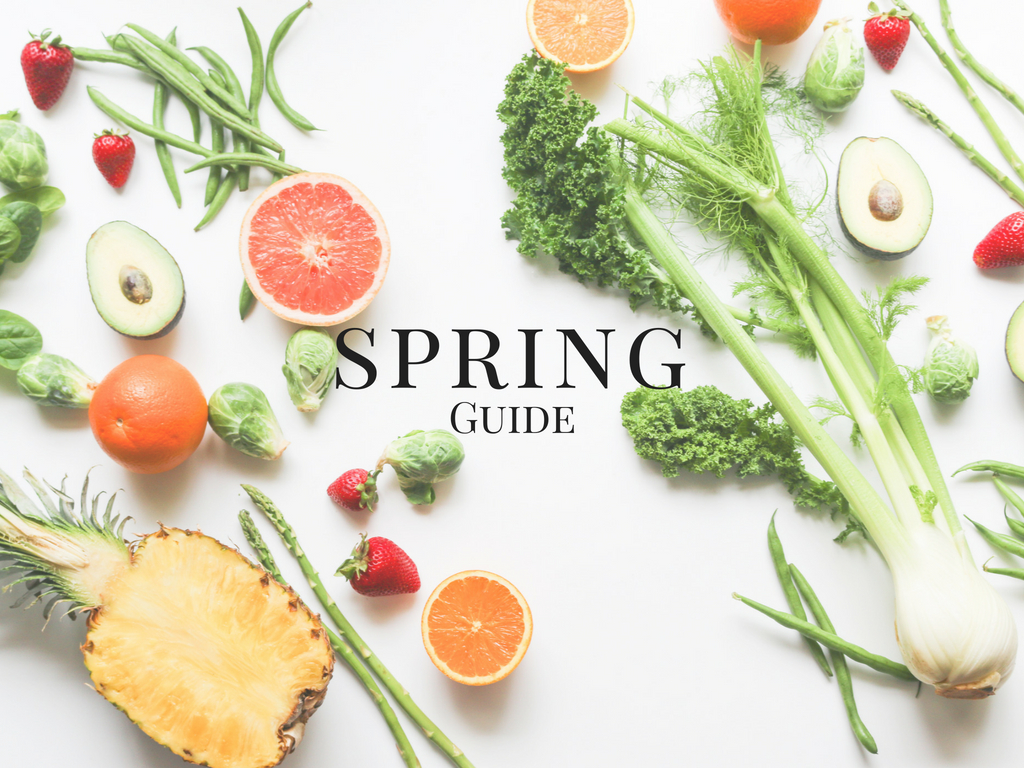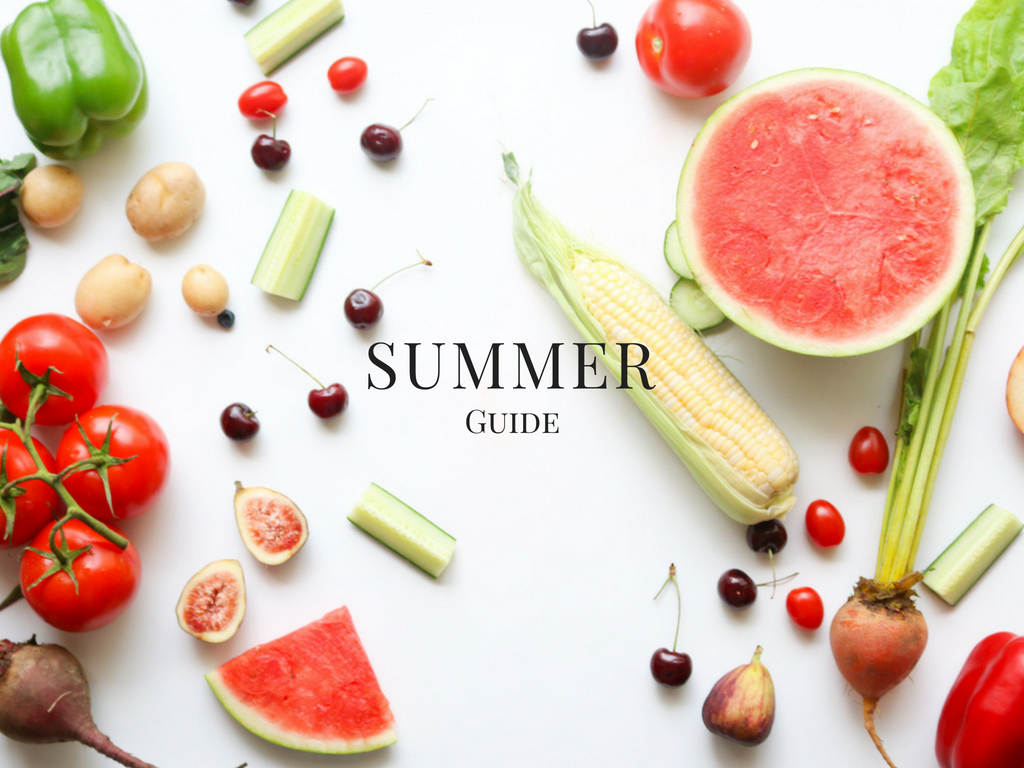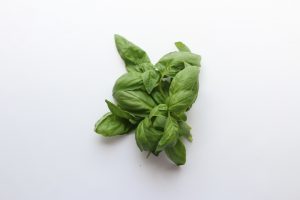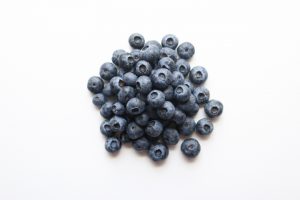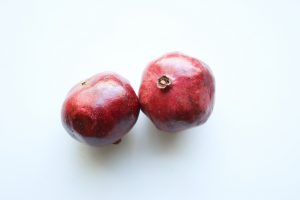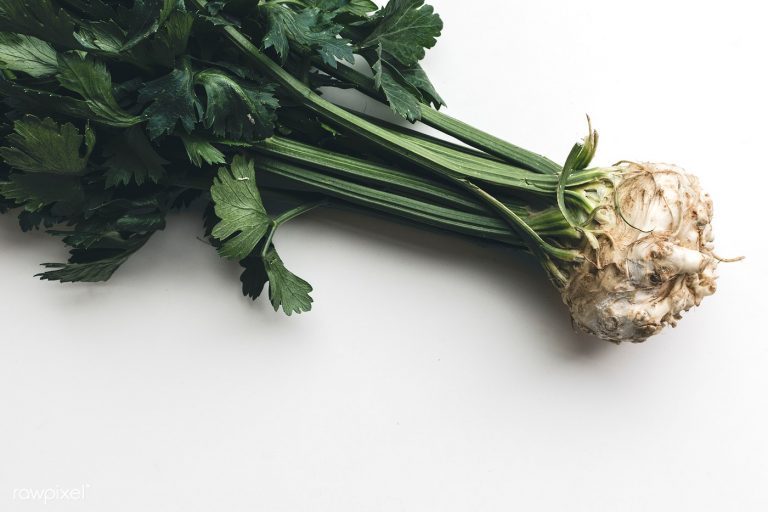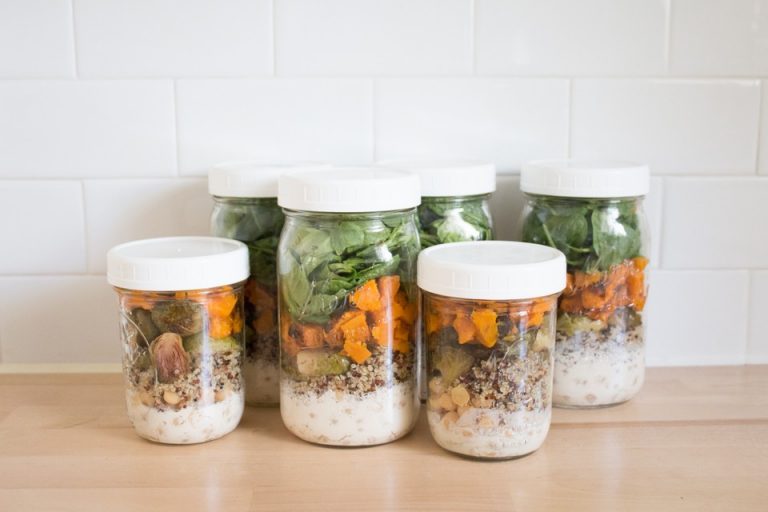A Guide to Seasonal Eating
Seasonal eating is an outstandingly simple food philosophy at its core but because of our globalized food system, it’s a lot harder than it sounds. Go into any supermarket today and what will you find? Tomatoes? Yep. Bell pepper? You bet. Fresh strawberries? Absolutely.
Whether grown in a hothouse or shipped halfway around the world, we’ve become completely accustomed to eating whatever we want whenever we want, which I don’t think is a good thing.
Why is it important to eat food that’s in season?
Do you mean besides the fact that you feel more connected to nature? Seasonal food is fresher, tastier, and more nutritious than food consumed out of season.
As I’ve learned to be more connected to my body, I’ve noticed patterns of cravings that are totally aligned with the season I’m in. For example, I crave brightly colored, water-rich vegetables and fruits during the summer, in the colder months my body often asks for different produce and heavy grains to support me through winter.
When you expand the variety of foods you eat and rotate them seasonally, your gut benefits from more variety of nutrients than you eating the same thing throughout the year. Also, studies show that fruits and vegetables contain more nutrients when allowed to ripen naturally than those harvested early to be shipped and distributed throughout the country at your local retail store.
Spring Season Produce Guide
Check out our Spring Guide here!
Summer Season Produce Guide
Check out our Summer Guide here!
Fall Season Produce Guide
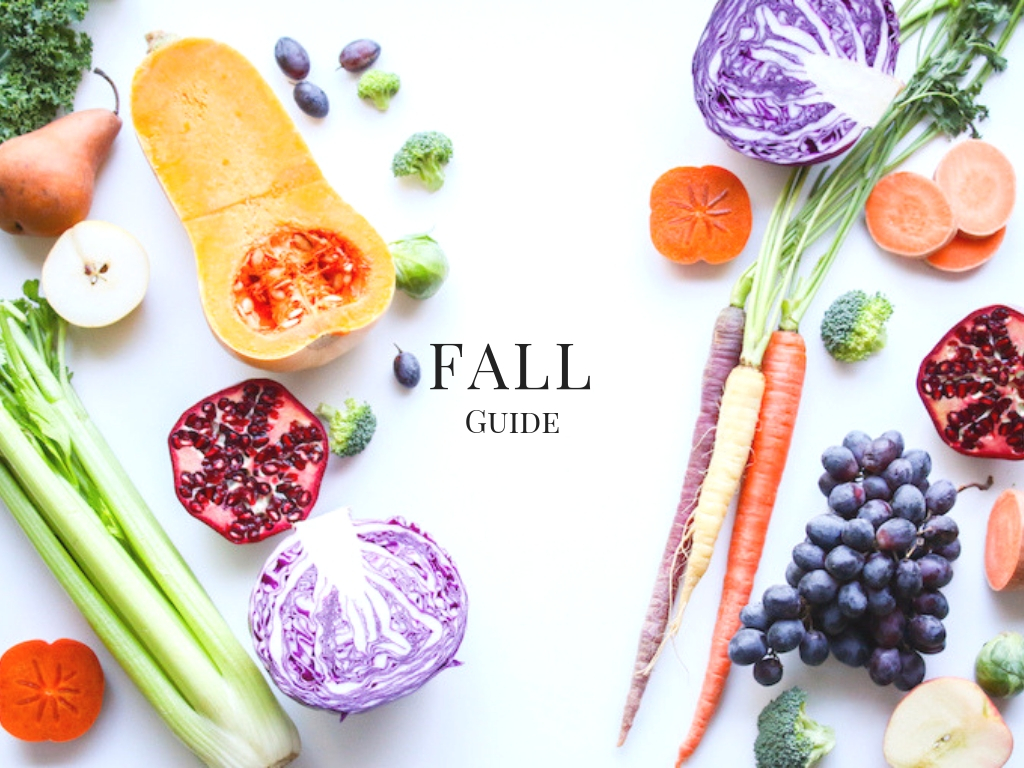
Check out our Fall Guide here!
Winter Season Produce Guide
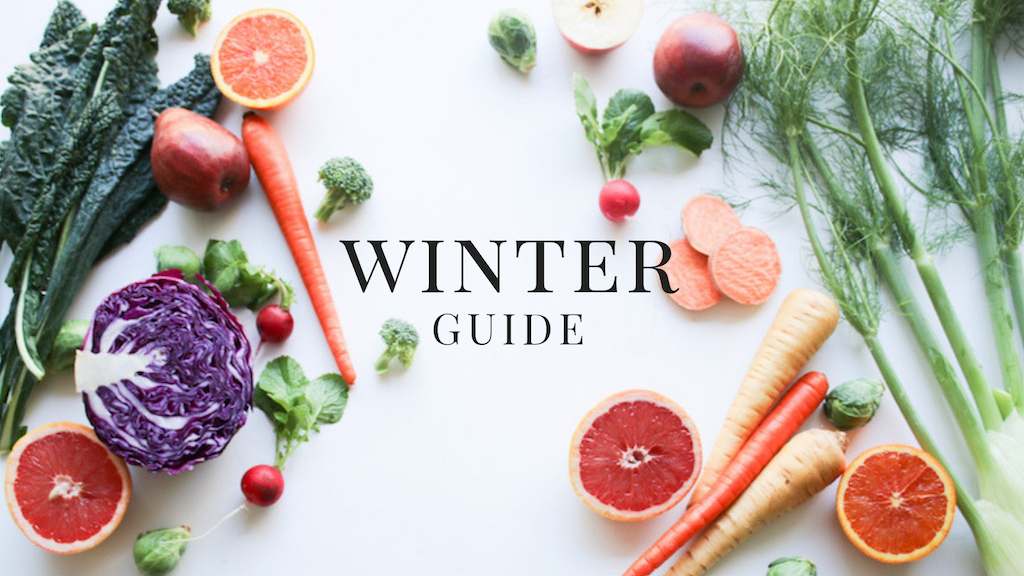
Check out our Winter Guide here!
Why is eating local food important?
- Local food benefits the environment. Purchasing locally grown foods helps support local farms and maintains farmland and open space in your community. A recent USDA study also found that direct-to-consumer producers were less likely to apply pesticides and herbicides to control weeds and insects than conventional producers (with the exception of chemicals to control insects and weeds in fruit, nut, and berry crops).
- Local food supports the local economy. The money you spend on products from local farmers and growers stays in the community and is reinvested with other local businesses. I love going to restaurants that support the local farmers in my area.
- Local farmers can tell you how the food was grown. When you buy directly from farmers, you have the opportunity to ask what practices they use to raise and harvest the crops. When you know where your food comes from and who grew it, you know a lot more about your food.
Where can I buy local, seasonal produce in my state?
Most of the produce I include in my Spring, Summer, Fall, and Winter Produce Guides can be found at your local farmer’s market, through local Community Supported Agriculture (CSA) programs operating in your area, and at restaurants and businesses committed to seasonal, local food.
Follow Blogs Like Mine!
Food blogs tend to follow seasonal food trends, just like the stores do but they do it better. So if you’re wondering what’s in season and how you should cook it, spend some time perusing your favorite sites for inspiration. Pinterest is another great source for this, with seasonal foods cycling throughout the year.
What’s Your Fave?!
What are some of your favorite seasonal ingredients? Or what’s your favorite food season? Comment below — or tag @livesimplynatural. I love getting to know my readers!
Hugs,


